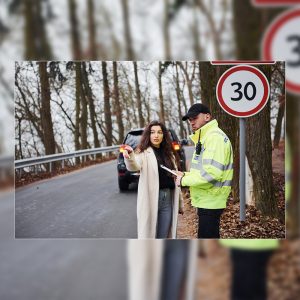A Step-by-Step Guide to Becoming a Highway Patrol Officer


Becoming a highway patrol officer opens the door to an exciting and fulfilling career in law enforcement. These dedicated professionals ensure road safety, enforce traffic laws, and respond to highway emergencies. If you’re passionate about serving your community, upholding the law, and safeguarding lives on the open road, follow this comprehensive step-by-step guide to embark on a rewarding journey as a highway patrol officer.
Self-Reflection and Commitment
Start your journey by reflecting on your motivations and passion for law enforcement. Assess your commitment to public service, your ability to remain composed in high-pressure situations, and your desire to positively impact society. Highway patrol officers require strong dedication to serve with integrity and compassion.
Educational Qualifications
Ensure you meet the educational prerequisites for a career as a highway patrol officer. While a high school diploma or GED is usually the minimum requirement, consider pursuing higher education in criminal justice or related fields to enhance your knowledge and increase your competitiveness.
Physical Fitness and Wellness
Physical fitness is essential for highway patrol officers, as their duties demand agility and endurance. Establish a regular exercise routine, incorporating cardio, strength training, and flexibility exercises. Maintain a healthy lifestyle to stay mentally and physically prepared for the challenges ahead.
Clean Background and Driver’s License
Highway patrol agencies conduct thorough background checks, looking for a clean criminal record and responsible behaviour. Similarly, possessing a valid driver’s license with a clean driving record is crucial, as you’ll spend significant time patrolling the roads.
Research and Apply
Research different highway patrol agencies and understand their specific requirements and selection processes. Tailor your application to highlight your strengths, experiences, and genuine interest in contributing to road safety and public service. Submit your application within specified deadlines, ensuring all necessary documents are accurate and complete.
Prepare for the Selection Process
The selection process for becoming a highway patrol officer is demanding and highly competitive. It typically includes a written exam, physical fitness test, panel interviews, background investigation, psychological evaluation, and a polygraph test. Prepare diligently for each stage, seeking study materials, guidance from current officers, and practising sample tests.
Attend the Police Academy
Upon successful selection, you will undergo training at a police academy. Embrace this comprehensive learning experience, as it equips you with essential skills, knowledge of law enforcement procedures, and the foundation for your future career as a highway patrol officer.
Field Training and Mentoring
Following graduation from the police academy, you will undergo on-the-job training alongside experienced officers. Embrace this invaluable experience, as it allows you to apply your training in real-life scenarios, learn from seasoned mentors, and adapt to dynamic situations.
Continual Growth and Specialization
As a highway patrol officer, I am committed to continuous growth and professional development. Participate in workshops, seminars, and specialized training programs to enhance your expertise, stay updated on advancements in law enforcement, and consider opportunities for specialization in areas such as accident reconstruction or DUI enforcement.
Serve with Integrity and Compassion
As you start your career as a highway patrol officer, remember the importance of serving with integrity and compassion. Uphold the law fairly and respectfully, build positive relationships within the community, and prioritize safety to protect those who use our roadways.
Becoming a highway patrol officer is a journey of dedication, resilience, and a commitment to public service. Following this step-by-step guide will prepare you to embrace the challenges and rewards of a career dedicated to safeguarding lives and ensuring road safety. As you embark on this meaningful journey, let your passion for serving your community and making a difference drive you forward as you navigate the open road as a highway patrol officer.
